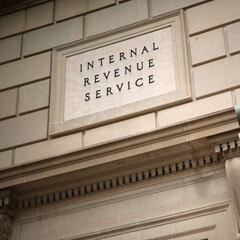Third stimulus check 'plus-up' payment: can I claim for extra money?
The IRS automatically could send a catch-up, or 'plus-up' payment between now and December 31, 2021, the deadline for sending stimulus checks, or you'll have to claim the money later.

More than 130 million third stimulus checks have been sent out but depending on what changed between your 2019 and 2020 tax return, you may be eligible for an additional 'plus-up' payment from the IRS.
The IRS announced earlier this week that over one million 'plus-up' payments had been made, as part of the 25 million stimulus check payments that were distributed over the same week.
These 'plus-up' payments are of varying size and are used to amend any previous payments that were insufficient.
Who is eligible for a 'plus-up' payment?
A significant income decrease that sees your Adjusted Gross Income (AGI) fall below the income threshold should result in a 'plus-up' payment being issued.
Whether you got your check or you're still waiting, you may be wondering: Will your eligibility for the new payment be based on your 2019 or 2020 taxes? What if you didn't file taxes in 2019, or haven't filed your 2020 return yet? (Unless you request an extension, you'll have to file by the new deadline of May 17.)
If you earned more in 2020 than in 2019, but the IRS uses your 2019 return (and gives you more stimulus money than you might be eligible for), you won't have to return that money. This is assuming you haven't filed your 2020 taxes.
If you are owed more money based on 2020 taxes than 2019, then one of two things may happen. Either the IRS automatically sends a catch-up, or 'plus-up' payment between now and December 31, 2021, the deadline for sending stimulus checks, or you'll have to claim the money later.
What happens if the IRS owes you more stimulus money
In many cases, the IRS will have issued your check before it processes your 2020 tax return. If you filed your return and your circumstances changed in 2020 in a way that would bring you more stimulus money in this round, such as if you earned less income, or if you had a baby or added a new dependent, you may be owed a 'plus-up' payment from the IRS.
If you're owed a 'plus-up' payment, you shouldn't have to file an amended tax return or do anything else to claim it, other than file your 2020 tax return as soon as possible. The IRS should send it out automatically once it processes your new return, likely by direct deposit or by paper check, if you don't have your account details on file.
'Plus-up' payment will arrive automatically
Related stories
The process is not difficult to go through and your 'plus-up' payment will arrive automatically once the IRS have sorted through the year’s tax filings.
Senior fellow at the Urban-Brookings Tax Policy Center, Janet Holtzblatt, said: "The taxpayer should receive the additional amount automatically," probably sometime between now and the summer.

